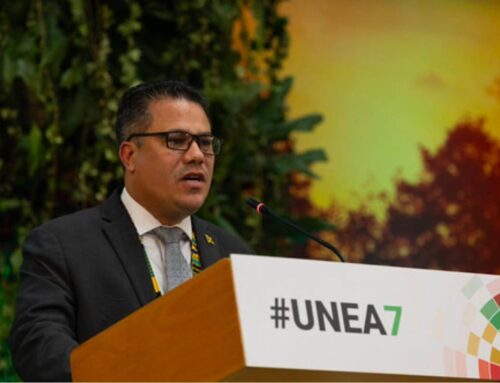Two R.I. bills offer a way to fund climate action. The cost of doing nothing is far greate
April 14, 2025
State legislators need to have the political will to correct a world where the victims pay while the perpetrators make staggering profits, writes Bill Ibelle of Climate Action Rhode Island

There aren’t many things you can get two-thirds of the American public to agree on these days. But that’s the percentage of voters who believe that fossil fuel companies should help pay for the parade of environmental disasters caused by fossil fuel emissions, according to a 2024 poll by Yale University.
Last year alone, the cost of hurricanes, wildfires, floods, droughts, beach erosion, and property damage caused by climate change totaled a staggering $182 billion.
And who paid for all that damage? You did.
That’s right, ordinary citizens pay the entire bill — taxes, disaster relief, infrastructure repairs, skyrocketing insurance rates — while the fossil fuel companies walk away scot-free.
This year, the Rhode Island Legislature will consider two bills designed to rectify this situation.
Both are based on a principle so simple that every kindergartener understands: If you make the mess, you clean it up.
The Economic and Climate Resilience Act establishes a fee (only at the first point of sale) on fossil fuels in Rhode Island. The goal is to create an incentive for companies to transition to clean energy. The money raised will be used to finance the state’s clean energy transition and reimburse residents and businesses for any modest rate hike they may experience.
The Climate Superfund Act takes a different approach. It applies only to the nation’s largest companies (those that produced more than 1 billion tons of CO2 over the last three decades) and therefore will levy no fines on Rhode Island businesses. The bill applies to climate damage from 1990 to 2024 — the period when the industry knew about its role in climate change and actively hid this knowledge from the public with a sophisticated campaign of disinformation and outright lies.
One would think this legislation would be a slam dunk, given that two-thirds of the public believe fossil fuel companies should help pay for the carnage they have caused. But money talks, and fossil fuel companies have a lot of it. So the question becomes whether legislators and the governor have the political will needed to correct this upside-down world where the victims pay while the perpetrators make staggering profits?
In 2024, ExxonMobil earned profits at $70,513 a minute and paid its CEO $44 million. Although the fines would amount to just 1 percent of company profits, these companies claim that if these bills are enacted, they will pass on the costs to consumers.
But that’s an empty threat intended to scare off legislators who are concerned that rising utilities bills are a top concern for their constituents. In reality, oil and gas prices are set by global markets, not individual companies, and if a company were to raise its prices, suppliers would just buy the fuel elsewhere. In addition, the Climate Resilience Act uses a substantial portion of the money raised to provide rebates to individuals and businesses to offset any minor rate increases.
While we’re talking about consumers, let’s not forget the staggering cost of doing nothing. I’m referring to that pesky $182 billion taxpayers spend a year to deal with climate disasters.
So why are these bills so important?
* Because here in the Ocean State, we are particularly vulnerable to sea level rise and the violent storms caused by climate change.
* Because the bills will provide funding for projects to make our state more resilient.
* Because they will help pay for the damage already caused by climate change.
* Because the transition to clean energy will create hundreds, if not thousands, of well-paying jobs and boost the economy.
* Because the cost of doing nothing is far greater.
* Because we’re on our own now. Let’s face it, the federal government has abandoned us. The Trump administration is openly hostile to clean energy, has cut off all climate funding to the states, and would rather give tax breaks to the rich than protect ordinary citizens.
But the most powerful reason we need to take action now is that our children’s future depends on it. We inherited an enormously beautiful planet and it is our responsibility to pass on that planet —unharmed — to the people we love most.
Providence-based writer Bill Ibelle is a member of Climate Action Rhode Island and the Rhode Island chapter of the Citizens Climate Lobby.
Search
RECENT PRESS RELEASES
Related Post



